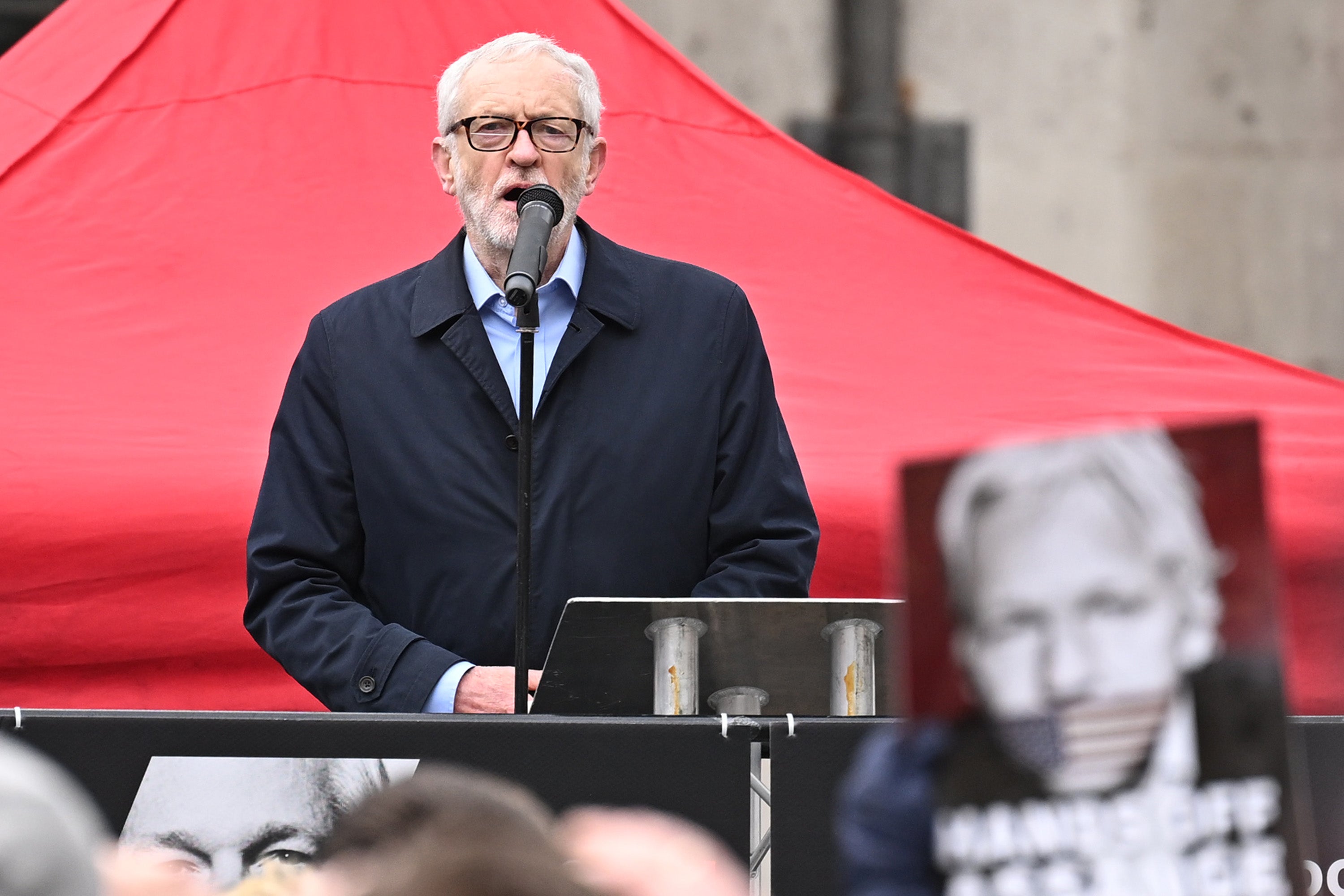The Independent's journalism is supported by our readers. When you purchase through links on our site, we may earn commission.
Why Jeremy Corbyn has given up on running for London mayor
After months of speculation, the former Labour leader has decided not to stand as an independent candidate – and ruin Sadiq Khan’s easy path to a third term – after all. So what is he really up to, asks John Rentoul


Jeremy Corbyn has run away from the chance to run as an independent candidate for mayor of London, revealing the collapse of the appeal of his kind of politics in the four years since he was Labour leader.
Instead of trying to widen the electoral base of Corbynism, it seems that the man who nearly became prime minister in 2017 is devoting his resources to trying to hold on to his Islington North parliamentary seat at the general election.
He hasn’t yet confirmed that he will stand as an independent in Islington North – despite confident reporting by The Times that an announcement “could come as early as this week” a year ago. But it seems almost certain that he will. It was reported 10 days ago that a friend of his had emailed a printing company to ask about the cost of producing election leaflets for him.
So he is reduced to what is probably a 50-50 chance of holding his seat against the official Labour candidate, who hasn’t been selected yet.
It is a comedown from grand plans to copy his ally Ken Livingstone’s outsider campaign to win the first London mayoral election as an independent in 2000. Livingstone was such a success at City Hall that he forced Tony Blair to let him back into the Labour fold, allowing him to run and win as the Labour candidate in 2004, before losing to Boris Johnson in 2008.
Corbyn is not even going to try. As an independent candidate, he could have been a potent threat to Labour. The party was worried that, with the government abolishing the second-preference voting system, Corbyn would split the Labour vote and allow Susan Hall, the Conservative candidate, to win on first preferences.
But Corbyn may have been influenced by a YouGov poll last year that suggested he was less popular than Khan among Londoners. Another poll by Find Out Now suggested that Khan would still win comfortably if Corbyn stood: with Corbyn listed as an independent candidate, the poll put Khan at 39 per cent, Hall at 24 per cent and Corbyn at 14 per cent.
With Corbyn out of the race, all polls suggest that Khan will win a record third term, by an even greater margin.
When, by chance, I ran into Corbyn after the deadline for nominations had passed at 4pm today, he glanced at his watch and said: “Why didn’t you remind me…?” For all his wry humour, the failure to put himself forward marks a dismal end to Corbyn’s career. He once held such sway over Labour members that Khan, when he was MP for Tooting, nominated him for the party leadership in order to curry favour with party members in London, when Khan sought the nomination for mayor in 2015. Now Corbyn doesn’t dare run against his former coattail candidate.
Corbyn himself has always been sceptical about independent candidates and small parties, recognising that the Labour Party is the only credible vehicle for his kind of politics – even though, for the three decades before 2015, it sometimes seemed an unlikely one.
It is only because he was too proud to recant and apologise for his truculent response to the Equality and Human Rights Commission finding that Labour was guilty of antisemitism under his leadership that he excluded himself from the parliamentary party and rendered himself ineligible to be the official Labour candidate in Islington North.
He knows that his chances of retaining the seat he has held since 1983 are dicey – even though the conditions for him there are among the most favourable for an independent candidate. He is well known and popular in the constituency, having proven himself to be a hardworking local MP for 41 years, as well as having a national profile. Yet the contest promises to be touch-and-go if Labour chooses a decent candidate against him.
Corbyn will be one of a handful of must-watch independent candidates in the general election. Leanne Mohamad, an independent British-Palestinian candidate, has declared her intention to stand against Wes Streeting, the shadow health secretary, in Ilford North, in protest against Labour’s policy on Gaza. Lutfur Rahman, the mayor of Tower Hamlets, is expected to stand against Rushanara Ali in Bethnal Green and Stepney in east London. And George Galloway may try to hold Rochdale, which he won in last month’s by-election, against Paul Waugh, the former Independent journalist, who is likely to be selected as Labour’s candidate.
The dream of some Corbyn supporters of his leading a “Peace and Justice Party” has dribbled into the sand. When Owen Jones left the Labour Party last week, there was nowhere for him to leave it for, apart from a new tactical voting campaign with another unmemorable name that will urge people to vote Green or for other fringe candidates.
That Corbyn gave Khan a clear run today confirms that Corbynism, for now, is over.






Join our commenting forum
Join thought-provoking conversations, follow other Independent readers and see their replies
Comments